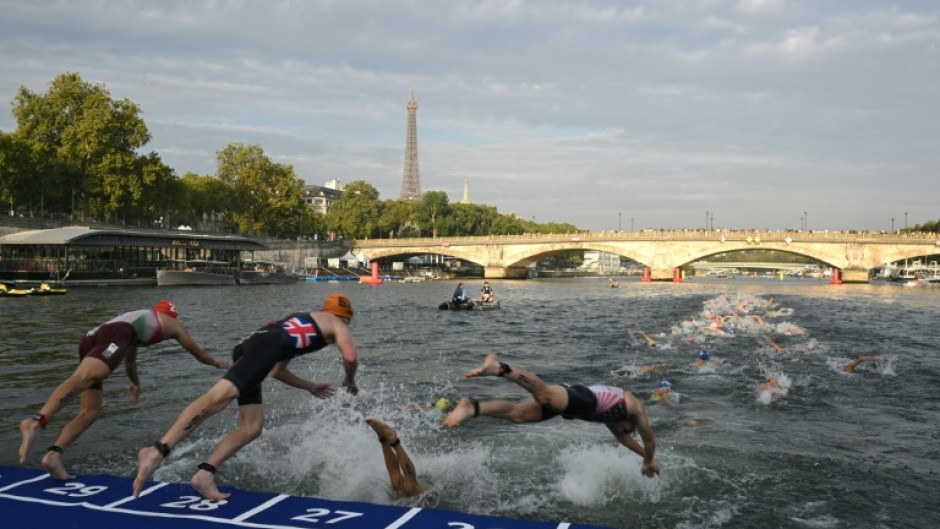
PARIS - Organisers of the Olympic and Paralympic Games in Paris may be feeling a little queasy over their commitment to hold open water swimming in the scenic but often polluted Seine.
Last August, the marathon swimming test events were cancelled because the water was too dirty, as were the swimming legs on two of the four days of triathlon and para-triathlon tests.
The city of Paris has insisted "there is no plan B".
The course for the men's and women's 10-kilometre events will start at the iconic beaux-art Pont Alexandre-III and, with the Invalides and Eiffel Tower in the background, head 1km down river past other famed attractions, including the Musee d'Orsay, and the Grand Palais.
Perhaps appropriately, it passes the newly-renovated Paris Sewer Museum and the more minimalist Pont d'Alma before looping back. The triathlon swims are shorter and will turn back sooner.
It is a route chosen to showcase the beauty of Paris.
It is also politically symbolic: Swimming has been banned in the Seine since 1923 but various Paris mayors have vowed to open it up.
In 1990, when he was mayor before becoming French president, Jacques Chirac promised the river would "soon" be clean enough in which to swim and that he would celebrate by taking a dip. He never did.
The current mayor, Anne Hidalgo, a vigorous promoter of green initiatives, has also promised she will take the plunge before the Olympics start and that the public will be allowed to swim at three locations by 2025. She has yet to get her feet wet.
City officials argue that the quality of the water has improved, but none of the samples collected between June and September 2023 met European standards on the minimum quality of water for swimming.
The open-water swimming last August was cancelled after heavy ran sent E. coli readings to six times the target level set by World Aquatics (FINA).
The city of Paris insisted they had "learnt" from the sampling problems at the test events.
National and local authorities are also investing 1.4 billion euros in five projects designed to clean the water.

